 Starting a business is a thrilling venture. However, true success lies in creating a business that not only thrives but scales effectively. A scalable business is one that can grow without being hampered by its structure or financial limitations. Whether you’re running a tech startup, a retail store, or offering professional services, this guide will help you build a scalable business in any industry.
Starting a business is a thrilling venture. However, true success lies in creating a business that not only thrives but scales effectively. A scalable business is one that can grow without being hampered by its structure or financial limitations. Whether you’re running a tech startup, a retail store, or offering professional services, this guide will help you build a scalable business in any industry.
What is a Scalable Business?
A scalable business model is designed to grow and adapt efficiently without significant changes in structure or finances. This means it can handle growth during peak seasons and sustained rapid expansion. The cost of growth should not impede profits; instead, it should allow the business to outpace competitors effortlessly.
Key Elements of a Scalable Business:
- Product/Service Offerings: Offer something that can be expanded or replicated without significant additional costs.
- Target Market: Have a clear understanding of who your target customers are.
- Revenue Model: Establish a revenue model that enables you to earn more with minimal increased costs.
- Customer Acquisition Strategy: Efficiently attract and retain customers.
Strategies for Scaling Your Business
Let’s dive into some practical strategies to ensure your business is ready for scalable growth.
Increase Your Customer Base
To scale a business, increasing revenue is critical. This usually starts with expanding your customer base.
Tips for Increasing Your Customer Base:
- Market Research: Identify potential market opportunities and pain points.
- Marketing Automation: Utilize tools that streamline marketing efforts, such as email marketing.
- Referrals and Partnerships: Encourage satisfied customers to refer others and build partnerships with complementary businesses.
Diversify Your Revenue Streams
Relying on a single revenue stream is risky. Diversifying helps stabilize income and supports growth.
Examples of Diversified Revenue Streams:
- Subscriptions: Offer subscription services for consistent revenue, e.g., Netflix.
- Online Courses/Products: Consider offering online programs or digital products.

- Franchising: Expand your business model by letting others replicate your success.
Invest in Resources and Infrastructure
Effective scalability requires robust infrastructure and resources.
Key Investments for Scalability:
- Technology: Invest in scalable technology solutions such as cloud-based platforms.
- Human Resources: Hire talented employees with the help of PSCI Employment Agency and provide them with the tools they need to succeed.
- Operational Efficiency: Implement processes that can be easily scaled up.
Avoid Common Pitfalls
Understanding and avoiding common mistakes can be as crucial as knowing the right strategies.
Common Pitfalls:
- Overextending Resources: Don’t grow faster than your resources allow.
- Neglecting Repeatable Processes: Ensure your business processes are standardized and repeatable.
- Ignoring Company Culture: A strong culture attracts and retains talent, which is essential for growth.
Embrace Continuous Learning
Scalability also involves continuous learning and adaptation. Stay informed about industry trends and be open to innovation.
Learning Methods:
- Business Degree Programs: Enhance your knowledge and skills by enrolling in online business degree programs.
- Workshops and Seminars: Participate in industry-related events.
- Mentorship: Seek guidance from experienced business leaders.
Leverage Data and Analytics for Informed Decision-Making
Leveraging analytics is crucial for scaling your business effectively. By harnessing the power of data, you can make informed decisions that drive growth and outpace competitors.
Key Approaches:
- Identify Key Performance Indicators (KPIs): Determine the metrics that matter most to your business objectives, such as customer acquisition cost, lifetime value, or churn rate.
- Utilize Analytics Tools: Implement tools like Google Analytics, CRM systems, or specialized software to collect and analyze data on customer behavior, sales trends, and operational efficiency.

- Data-Driven Marketing: Tailor your marketing strategies based on data insights to target the right audience with personalized messages, improving conversion rates.
- Predictive Analytics: Use data modeling to forecast future trends and customer needs, allowing you to proactively adapt your products or services.
By integrating data and analytics into your decision-making process, you not only enhance operational efficiency but also position your business to respond swiftly to market changes. This strategic use of data ensures that your scaling efforts are grounded in evidence, reducing risks and maximizing opportunities for sustainable growth.
Conclusion
Building a scalable business is about more than just having a great product or service. It requires a well-thought-out plan, efficient processes, and a willingness to adapt and grow. By focusing on increasing your customer base, diversifying revenue streams, investing in necessary infrastructure, and avoiding common pitfalls, you can set your business on a path to sustainable growth. Remember to continually learn and adapt to stay ahead in your industry. With these strategies, you can build a scalable business in any industry, ensuring long-term success and profitability.
